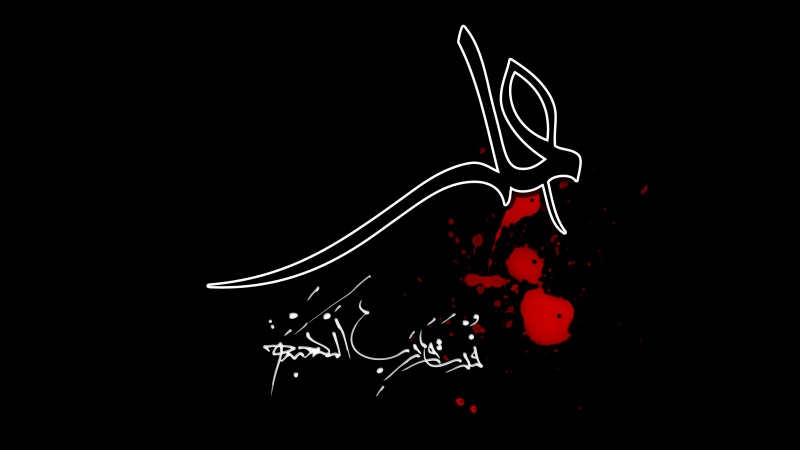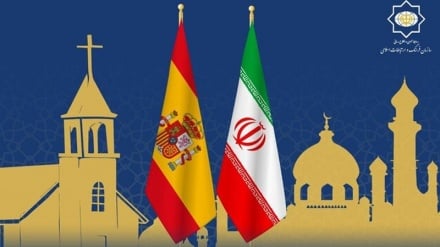Imam Ali (AS), The Embodiment of Faith
Salaam and condolences to you, since these days we are in the state mourning for the Commander of the Faithful, Imam Ali (AS), who on the 19th of Ramadhan was struck a fatal sword blow on his head while in communion with God Almighty during the ritual morning prayer in the mosque of Kufa in Iraq, and after three days of writhing in acute, attained immortal martyrdom on the 21st.
“Indeed the First House to be set up for mankind is the one at Bakkah; blessed and a guidance for all nations.”
This is what God Almighty says in ayah 96 of Surah Aal-e Imran, regarding His Symbolic House, the holy Ka’ba in Mecca.
Built by the Father of mankind, Adam, as the first-ever structure on Planet Earth to serve as the focal point of worship of the One and Only Creator, the cube-shaped edifice, suffered damage during the great deluge of the days of Prophet Noah and lay in dilapidated state for several centuries until the Lord Most High ordered Prophet Abraham and his firstborn son, Prophet Ishmael, to rebuild the supreme symbol of monotheism, fully aware that pagan Arabs would pollute it with idols, thereby requiring its thorough cleansing by the Prophet of Islam, with the assistance of his first cousin, son-in-law, and divinely-designated heir, Imam Ali ibn Abi Taleb (AS), who was destine to deliver the final blow to idolatry in Mecca by pulling down from atop the Ka’ba the chief Arab deity, Hubal. In ayah 81 of Surah al-Isra’, God says:
“And say (O Muhammad): The truth has come and falsehood has vanished; indeed falsehood is bound to vanish.”
These words of Almighty Allah were on the lips of the Seal of Messengers in 8 AH on the 20th of Ramadhan at the surrender of Mecca when he raised on his shoulders the Commander of the Faithful for the final blow to idolatry at the First House built on Planet Earth in which his dearest cousin was born three decades earlier on the 13th of Rajab – the only person ever to be born in the Most Holy of Holies.
The Prophet used to say: “O Ali your position is like that of the Ka’ba.”
In view of this, what could be written of a person, the praise of whom will exhaust ink and paper! Born in the House of God, and martyred while in communion with his Creator in the Great Mosque of Kufa, with his face turned towards that very site of his birth (Ka`ba), every single moment of Imam Ali’s (AS) 63 years in this mortal world was dedicated to and spent in the service of Islam.
To quote his own words: “When I was a young child, the Prophet took care of me. He would bring me to his chest and I would sleep in his bed, so close to him that I could even smell his scent. He would chew food for me and then feed me with it. He found no lies in my speech, nor any shortcomings in my actions.”
As a boy, he stood beside his mentor, chasing away the kids who used to throw stones at the Prophet. He endured the three-year siege of the Bani Hashem Clan by the infidels of Mecca in the Gorge of Abu Talib. When plots were hatched to extinguish the light of Prophethood, the brave Ali (AS), volunteered to sleep on his cousin’s bed, so that the latter could migrate to Medina undetected. The reward for his self-sacrifice to which Islam will remain ever-indebted, came in the form of ayah 207 of Surah al-Baqarah:
“Among men, is he, who sells his soul for the pleasure of Allah"
Volumes have been written on the merits of Ali (AS) by eminent scholars in every age and era. The famous 11th century CE Sunni historian Ibn Asaker writes in his Tarikh Damishq that the Holy Qur’an contains no less than 300 verses in Ali’s favor, more than any other companion of the Prophet.
The Mu’tazalite scholar Ibn Abi l-Hadid writes in his preface to the Nahj al-Balagha: “Imam Ali's (AS) physical prowess was well-known. He was the one who lifted the gate of Khaybar, even when a whole group of the troops could not take it back to its place. He was the one who threw down the idol of Hubal (which was a large idol), from the top of the Ka'ba to the ground. He was also the one who lifted up a huge rock with his hands, while a spring gushed forth beneath it.”
The same writer further says: “What can I say about the man whose enemies acknowledged his virtues as even they could not deny or hide them. Indeed, Banu Umayya took power from the east to the west of Islamic lands and tried to extinguish the light of Imam Ali's (AS) glory, using any means and tricks. They fabricated many hadiths about cursing him and they cursed him on all pulpits. They not only threatened his admirers, but they killed them and banned them from quoting any tradition that implied his virtues or promoted his name. They even banned naming children after him. However, all of these attempts resulted in nothing except for the exaltation of his glory. He was like a musk: the more of it that is secreted, the more it sweetens the air… He the origin of every human virtue and excellence; to whom every school and group trace back their origin and find honor. He is the origin of all excellences and surpasses others and is the pioneer of all arenas.”
In short, Imam Ali (AS), as the epitome of justice continues to transcend history and all historical developments, and has left lasting statement of guidance for all humanity, whether Muslim or not, as is evident by the tribute paid to him by the Arab Christian scholar George Jordaq, who has written several volumes, comparing the Imam’s excellence over philosophers beginning from the Greeks, and calling him “The Voice of Human Justice”.
To end this brief radio programme, here is a passage from Imam Ali’s famous epistle to his governor of the then Christian-majority Egypt, Malek Ashtar, on the norms of good government:
“Habituate your heart to mercy for your subjects, and to affection and kindness for them. Do not stand over them like greedy beasts who feel as though they should devour them. They (your subjects) are of two kinds: either your brother in religion or like you in creation.”
AS/MG



